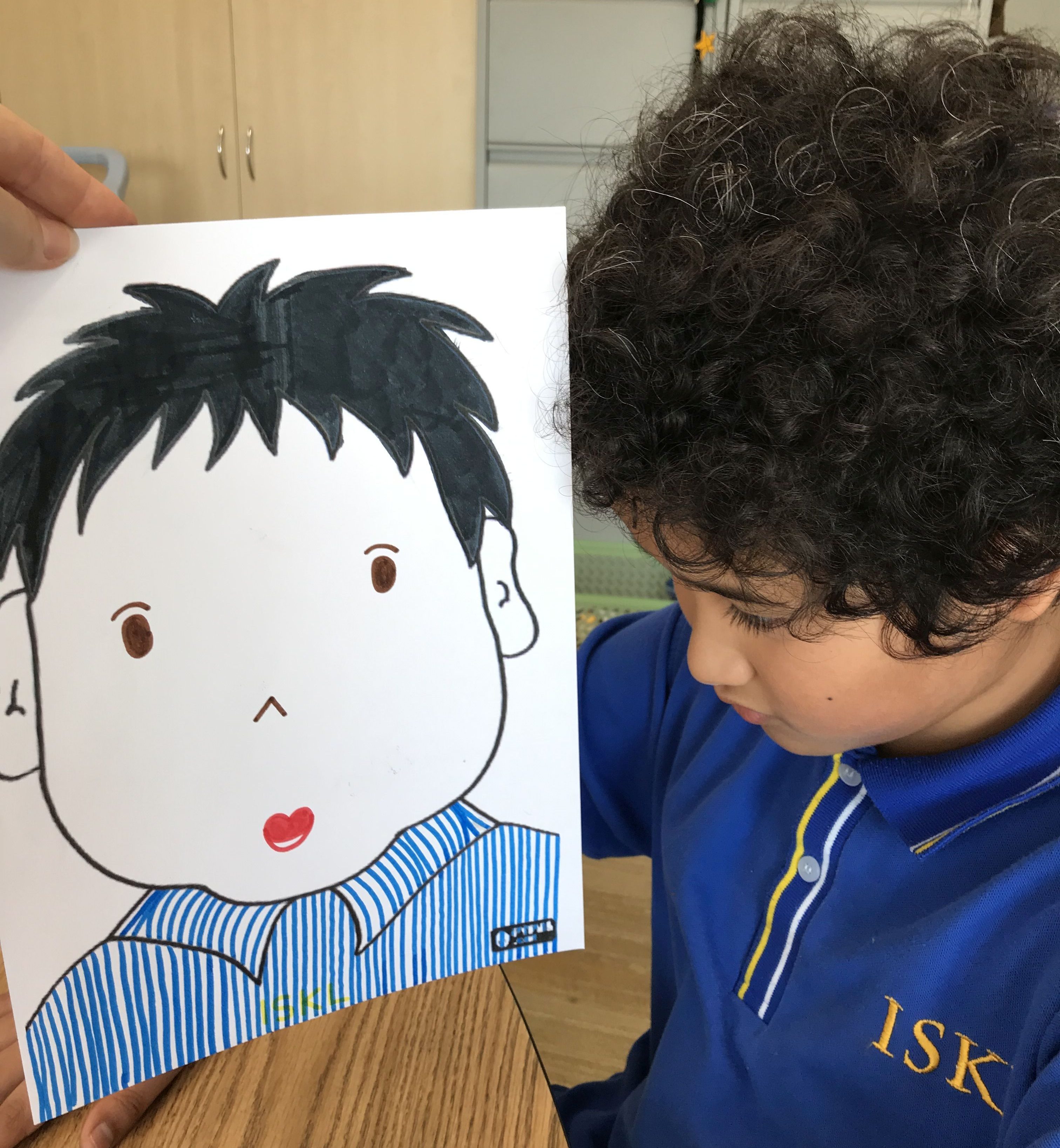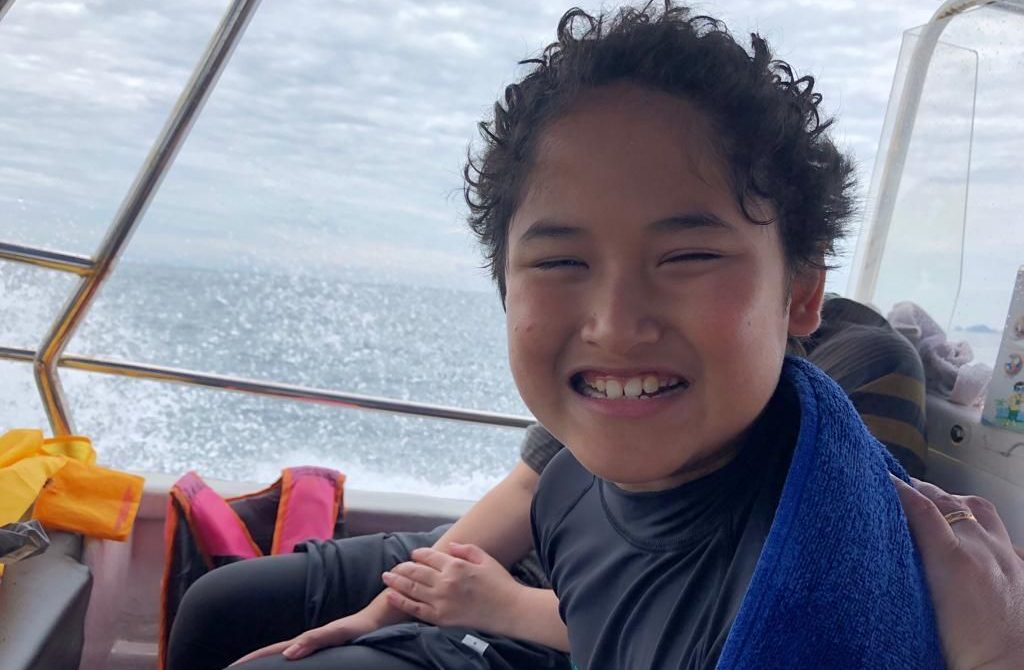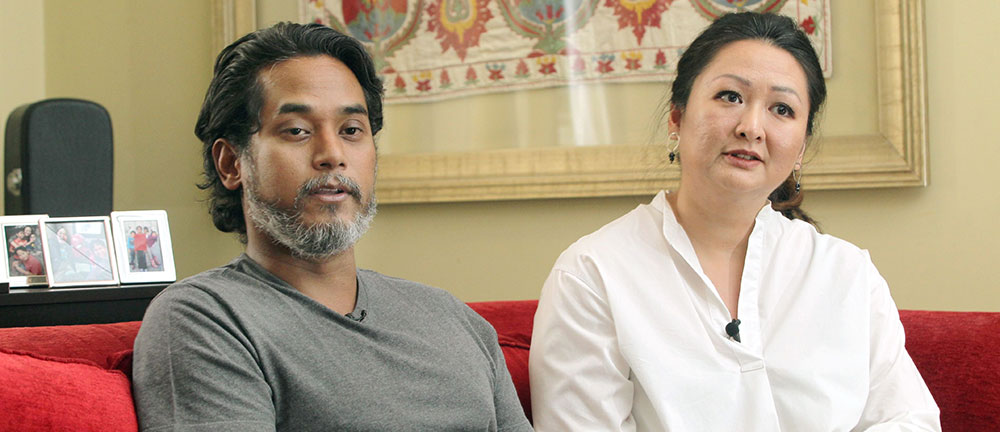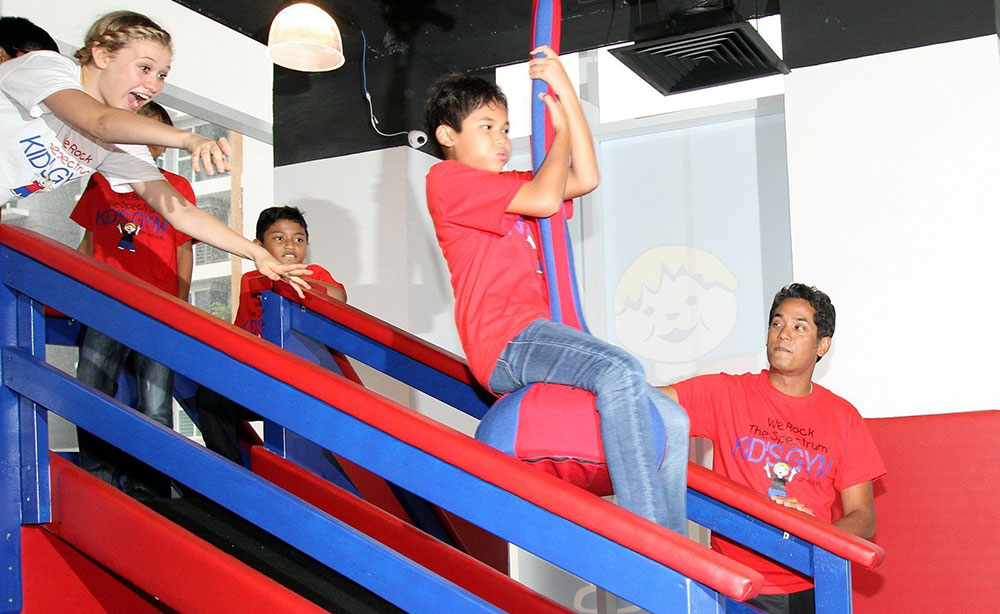
Autism awareness: MP Khairy Jamaluddin opens up about his son’s world
Every evening, Rembau MP Khairy Jamaluddin and his wife Nori Abdullah print out the next day’s schedule for their son Timor, detailing all his activities for the entire day.
The timetable is illustrated with images and visuals of the following day’s activities. Should there be last minute changes to the schedule, his parents would prepare the 10-year-old for the disruption to his routine ahead of time.
Such schedules are crucial in helping Timor maintain a sense of calm and order.
Timor has Autism Spectrum Disorder (ASD) and, as with many children (and adults) on the spectrum, an adherence to routine is crucial. A sudden interruption to a set routine could make him anxious and lead to tantrums.
In the seven years since Timor was clinically diagnosed with autism, Khairy and Nori have had to face the realisation that their child understands the world differently and, as such, needs to be nurtured differently.
“Honestly, you never fully come to terms with or understand completely a child with ASD,” admits Khairy. “They live in a neurological world that is completely different to people who are neurotypical. I will never fully understand what the world is like through Timor’s eyes. It’s good, in a sense, because everyday we are evolving.”
Timor started showing signs that he was developing differently after he turned two.
“He started regressing and seemed to be in his own world a lot. By the time he was three, it was quite obvious that he had issues. On his third birthday, we noticed that he didn’t want to play with the other children and was just focused on the slide. We went to see a developmental pediatrician who diagnosed him with ASD,” Nori shares.

Timor with his self-portrait. Though the 10-year-old loves to ride horses, swim andplay Minecraft, his favourite pursuit of all is drawing.
Hearing that their son has autism wasn’t easy, admits Khairy.
“Initially, it was a shock because it was a diagnosis that he is different. As parents, we’ve had to change our life plans, dreams and ambitions for him. Modify them to take into account that he has ASD. But we knew that we had to help our child become independent,” says Khairy in an interview at their home recently.
As unprepared as they were, Khairy and Nori knew that they had to hit the ground running and do whatever it takes to help their son navigate the world.
Timor had gone for speech therapy even before his diagnosis, and he started learning using the Applied Behaviour Analysis (ABA) method, one of the widely accepted therapies for children with autism.
At school, Timor is also taught life skills. He is now learning to memorise his parents’ phone numbers and his home address.
“Just in case he gets lost in the middle of a crowd or something, he needs to know this information,” explains Khairy.

Timor (in blue) gets along really well with his brothers Jibreil (in white) and Raif. Though they don’t spend all their time together, the three share a bond.
ASD is a neurological disorder, characterised by a cluster of symptoms that are often different in every child or adult, depending on the type and severity of their condition.
Individuals with autism often have impaired communication and social skills, scrambled sensory processing, delayed childhood development, an aversion to eye contact, tendencies towards repetitive behaviours and poor motor functions.
While there is no known cure for autism, early treatment and intervention can make a vast difference in the lives of those with ASD.
“We were never in denial. We just jumped into action, finding out what we had to do next. We started him on therapy right away and many things have happened along the way … we have evolved but everyday, we are still learning.
“Timor is in a good place right now but we know that it’s going to be a continuous effort. We don’t know what tomorrow will be like … his special needs are something we have to live with,” says Nori.
The best that he can be
Timor is the middle child of Khairy and Nori. He has an older brother, Jibreil, who is 11, and a younger brother, Raif, who is four.
“Jibreil, being a year older, is very familiar with his brother being on the spectrum. He understands the challenges. Because socialisation is a problem for Timor, the two of them don’t have long conversations that neurotypical brothers may share. But there is a close bond between the two. They may not talk, but they wrestle and rough each other up and play with each other.
“They are brothers and though they don’t spend all their time together, they realise that they are the closest person to each other than anyone else.
“And Raif? He seems to understand too. The way he treats Timor is different than the way he treats Jibreil. He is more respectful to Timor, actually,” shares Khairy.
Raif, adds Nori, hero worships his two brothers.
“He worships them both. We hope that this is him being aware and understanding their differences in a positive way.”

Like most children his age, Timor has many hobbies.
Like most children his age, Timor has many hobbies, says his father with pride. He loves to draw, swimming, inline skating, cycling … and he loves the alphabet. Timor loves Minecraft too.
“He rides horses, and he loves cold weather and snow. He is a happy child who has had a happy childhood and I personally think that he is an overall great kid,” says Khairy. About three years ago, Khairy spoke publicly about a watershed moment in his relationship with Timor after reading Uniquely Human, a book about autism written by Dr Barry M. Prizant.
“The fundamental message from that book is that we should stop trying to change the child (with ASD) to suit the world; we must change the world or our surroundings to accommodate children who are on the spectrum. That’s a big idea in neurological development thought and it has brought about a different way of approaching people with autism,” says Khairy.
So inspired were the couple by the book that they bought dozens of copies for friends and family, hoping to spread awareness about living with ASD.

Khairy and Nori recognise Timor’s unique talents and find ways to nurture them, on his own terms.
It also changed the way they approached Timor; it made them more aware of his unique talents and find ways to nurture them, on his own terms.
“We hope that he will grow up to be independent. As parents, I think we’d like to know that if we are not able to look after him 24/7, he will be able to do some of that on his own.
“We also want him to fulfill his potential. We don’t ever want to sell short our child with different abilities. Timor loves to draw … that’s one of his favourite pursuits and he is very good at it. He can draw straight lines without a ruler and in such detail.
“Who knows, he could grow up to be a draftsman or architect if he wants,” shares Khairy.
Access to therapy
Khairy and Nori are well aware that Timor is more fortunate than many in that he has access to early intervention and therapies.
To do their part in supporting other families, Nori has opened a special needs gym, a franchise from the United States called We Rock The Spectrum, to increase access to therapy for families who may not otherwise have the financial means to afford occupational and sensory integration therapy.
“Not everyone can afford therapy. It’s not cheap and it’s not that readily available. Timor has come as far as he has because he is so privileged to be able to get therapy and we want all children to be able to get therapy,” says Nori, adding that Timor wasn’t home during this interview as he was at the gym.

Khairy and Jibreil at the We Rock The Spectrum Gym for children at the launch about three years ago.
The indoor gym, open to both special needs and typical children, is equipped with specialised equipment used by therapists.
“We recently launched a programme called Therapy Through Play. The idea behind this is that everyone should have access to therapy. So we started a sponsorship programme to help families who really can’t afford the fee. Ideally, we want parents to come and learn what they can do to help their children too,” says Nori.
Timor’s parents’ message on Autism Awareness Month is, “Read up a little about autism. It may not affect you personally but there are many Malaysians on the spectrum and the greatest tragedy would be if, because society is unaware, we deny these children the opportunity to reach their potential.”






Level 1, No 204, Jalan Limau Manis, Bangsar, 59000 Kuala Lumpur, Malaysia
+010 939 5711